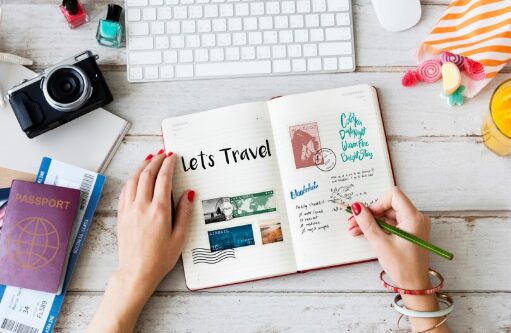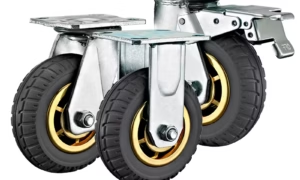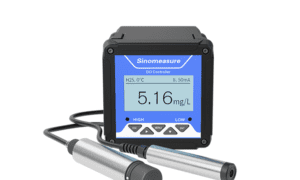Are you passionate about exploring new places and sharing your adventures with the world? Travel blogging could be the perfect path for you. Whether you dream of earning income while traveling or simply want a creative outlet to document your experiences, starting a travel blog can be an incredibly rewarding journey. In this travel blogging guide, we’ll walk you through every step you need to launch your travel blog, grow an audience, and even make money doing what you love.
Why Start a Travel Blog?
Before diving into the how, let’s understand the why.
Travel blogging allows you to:
- Share your personal travel stories with a global audience.
- Build a community of like-minded explorers.
- Document memories for yourself and others.
- Turn your passion into a source of income through affiliate marketing, sponsored posts, and brand collaborations.
It’s a great combination of creativity, storytelling, photography, and entrepreneurship.
Step 1: Define Your Niche and Audience
Choose a Specific Niche
To stand out in the crowded travel blogosphere, it’s essential to focus on a specific niche. Consider these examples:
- Budget travel for students
- Luxury family travel
- Adventure travel for solo women
- Digital nomad lifestyle
- Eco-friendly travel tips
By narrowing your focus, you’ll attract a loyal audience that shares your interests.
Know Your Target Audience
Ask yourself:
- Who do you want to reach?
- What are their travel goals?
- What problems can you help them solve?
When you understand your audience, you can create content that resonates with them deeply.
Step 2: Pick a Blog Name and Domain
Brainstorm Creative Blog Names
Your blog name should be:
- Easy to remember and spell
- Reflective of your niche and personality
- Available as a domain (check availability on platforms like GoDaddy or Namecheap)
Examples: “Wanderlust Diaries,” “Budget Voyager,” “Eco Trail Tales”
Register Your Domain
Once you’ve chosen a name, register your domain through a reliable registrar. It’s a small investment that makes your blog look professional and trustworthy.
Step 3: Set Up Web Hosting and WordPress
Choose a Web Hosting Service
A good hosting provider is critical for speed, security, and reliability. Bluehost, SiteGround, and Hostinger are beginner-friendly and offer one-click WordPress installation.
Install WordPress
WordPress.org (not WordPress.com) is the best platform for travel bloggers because it offers:
- Full customizationSEO tools
- Monetization flexibility
- Thousands of themes and plugins
Step 4: Design Your Blog
Pick a Travel-Friendly Theme
Look for a clean, mobile-responsive theme with space for beautiful photos. Astra, OceanWP, and GeneratePress are popular options.
Customize the Layout
Design important pages:
- Home: Your welcome page with a blog overview
- About Me: Tell your story and connect with readers
- Destinations: Organize blog posts by country or region
- Contact: Allow readers and brands to reach you
Use plugins like Elementor or Beaver Builder to drag-and-drop design elements.
Step 5: Create Engaging Content
Start With Core Blog Posts
Here are some ideas to begin:
- Your travel journey and why you started blogging
- Packing checklists for specific destinations
- Budget travel tips
- Local guides to cities or countries
- Food experiences abroad
Always include personal stories, photos, and helpful advice.
Write for Readers and Search Engines
To get discovered on Google:
- Use keywords naturally in your titles and paragraphs
- Include meta descriptions and internal links
- Format using headings (H1, H2, H3)
- Add alt text to images
SEO (Search Engine Optimization) is your best friend for long-term blog growth.
Step 6: Grow Your Audience
Use Social Media
Create accounts on:
- Instagram for beautiful visuals
- Pinterest for blog traffic
- TikTok or YouTube for video content
- Facebook Groups for community engagement
Share behind-the-scenes, travel hacks, and personal experiences.
Build an Email List
Start collecting emails from day one. Offer a free travel guide or packing checklist in exchange for sign-ups. Use tools like Mailchimp, ConvertKit, or MailerLite.
With email marketing, you stay in touch with your readers directly.
Step 7: Monetize Your Travel Blog
Affiliate Marketing
Recommend travel gear, accommodations, or tours with affiliate links. When someone makes a purchase through your link, you earn a commission.
Join affiliate programs like:
- Amazon Associates
- Booking.com
- GetYourGuide
- CJ Affiliate
Sponsored Posts
As your blog grows, brands may pay you to write posts featuring their products or services. Make sure to disclose these collaborations to maintain trust.
Sell Products or Courses
You can create:
- Travel eBooks
- Lightroom presets
- Online courses on travel photography, blogging, or itinerary planning
Step 8: Stay Consistent and Authentic
Set a Blogging Schedule
Post regularly, whether it’s once a week or twice a month. Consistency helps build trust and authority.
Be Yourself
Your unique voice and experiences are what make your blog special. Don’t try to copy other bloggers. Authenticity builds loyal readers and long-term success.
Common Mistakes to Avoid
- Trying to be everywhere at once: Focus on 1-2 social platforms first.
- Neglecting SEO: Great content won’t reach readers without basic SEO.
- Ignoring design: A clean, user-friendly blog keeps visitors engaged.
- Waiting to monetize: Start experimenting with affiliate links and email lists early.
- Comparing yourself to others: Everyone starts somewhere. Focus on your journey.
Final Thoughts
Starting a travel blog is a marathon, not a sprint. It takes time to build an audience and earn income, but the rewards can be life-changing. With dedication, creativity, and a willingness to learn, you can turn your love for travel into a thriving blog that inspires others and even funds your adventures.



































